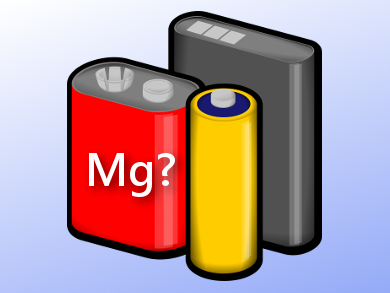Lithium ion batteries dominate the market for consumer electronic devices. However, dendrite formation limits their performance and can cause the batteries to short-circuit. Magnesium anodes offer nearly twice the volumetric capacity, and they do not form dendrites.
John Muldoon, Toyota Research Institute of North America, Ann Arbor, MI, USA, and colleagues reviewed the major recent advances and challenges to developing a practical magnesium battery. Challenges include the reduction potential of Mg, which is less negative than that for Li. Also, reduction products form on the surface of magnesium electrodes, blocking the diffusion of magnesium ions. (Similar layers on lithium electrodes do not block lithium ion diffusion.)
The researchers conclude that solid state diffusion of magensium ions into and within cathode materials presents the main challenge to battery development. They note significant progress in developing electrolytes and anodes, but magnesium ion batteries with energy densities comparable to lithium ion batteries have not been reported. Lower-voltage cathodes with a higher capacity conversion may resist the formation of blocking films on their surfaces because they do not catalyze the oxidation of magnesium electrolytes.
- Confession of a Magnesium Battery,
Claudiu B. Bucur, Thomas Gregory, Allen G. Oliver, John Muldoon,
J. Phys. Chem. Lett. 2015.
DOI: 10.1021/acs.jpclett.5b01219



